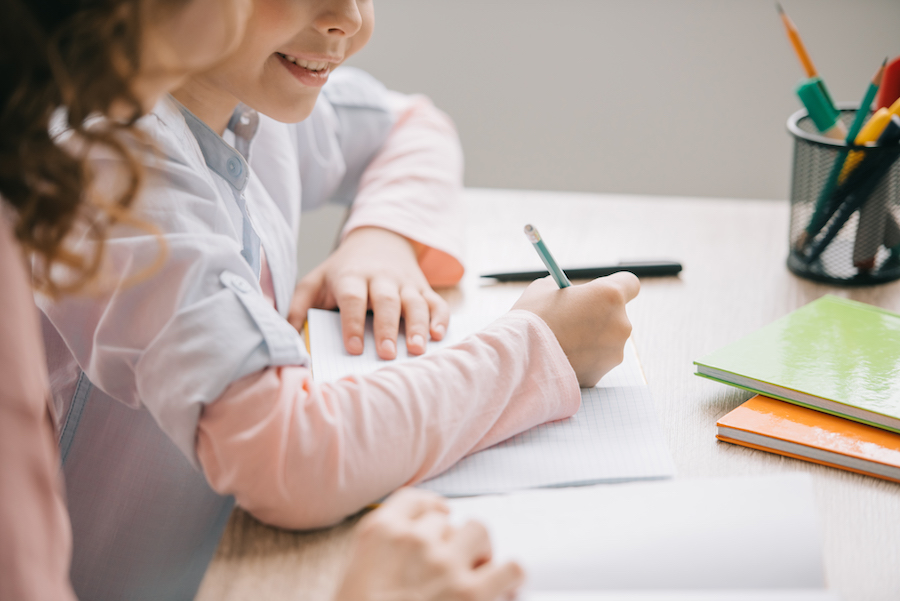Developmental relationships and student academic motivation: Current research and future findings.
Scales, P.C., Pekel, K., & Houltberg, B.J. (2022). Developmental relationships and student academic motivation: Current research and future findings. In A.L. Reschly & S.L. Christenson (Ed.), Handbook of Research on Student Engagement (pp. 257-283). Springer Cham. https://doi.org/10.1007/978-3-031-07853-8_13
Summarized by Ariel Ervin
Notes of Interest:
- Evidence shows that student-teacher relationships in school settings are essential for motivation.
- Efficient classroom practices contribute to student-teacher relationship quality.
- Effective teaching practices provide youth with developmental experiences that allow them to act and reflect in ways that assist them in developing agency, values & mindsets, skills & knowledge, self-regulation, competencies, and integrated identity.
- This book chapter explores how developmental relationships can bolster academic motivation and a variety of other youth outcomes.
- It also provides more comprehensive criteria that establish whether a student-teacher relationship is more developmentally significant than a caring one.
- The proposed Development Relationships Framework addresses this inquiry across multiple contexts (school, out-of-school, and families).
- Element 1: Express care
- Element 2: Challenge growth
- Element 3: Provide support
- Element 4: Share power
- Element 5: Expand possibilities
- Three general themes were identified.
- Boost responsiveness and cultural validity of the Developmental Relationship Framework
- Better understand and mobilize youth to be in charge of developmental relationships in and out of school.
- Leverage a more in-depth awareness of youth-adult pairs and how, in turn, an individual relationship influences the overall network of developmental relationships.
- While caring relationships are important, they are not an adequate developmental relationship component that allows students to learn and succeed.
- It’s important to remember that positive student-teacher relationships are part of a multi-layered teaching & learning system, where teaching & teacher quality interact to influence performance, engagement, and motivation.
Introduction (Reprinted from the Abstract)
In this chapter, we describe our applied research on student-teacher relationships and motivation, which builds on extensive theoretical and measurement foundations, most especially drawing on self-determination theory, and which blends the traditional lines of motivation and engagement research in psychology (which has tended to emphasize internal, individual influences) and education (which has tended to emphasize teacher behaviors that promote engagement, such as relationship interactions). Most importantly, our work more comprehensively defines the criteria that make student-teacher relationships more developmentally influential than being merely positive connections between young people and the “caring adults” that teachers are often urged to be on social media and in professional development workshops. Our studies and the studies of other scholars show that caring is a necessary but not sufficient element of the developmental relationships that enable students to learn and thrive. Drawing on multiple studies, we outline a theory of change for how student-teacher developmental relationships influence student motivation and educational outcomes, and conclude by addressing three broad themes needing robust attention in both research and practice. These include strengthening the cultural validity and responsiveness of the Developmental Relationships Framework, better understanding and activating young people themselves as drivers of developmental relationships in and outside of school settings, and leveraging in practice a deeper knowledge of not just the adult-youth dyad but how single relationships have their effects within a larger web of developmental relationships.
Implications (Reprinted from the Conclusion)
None of these three themes for future directions are new ideas. Previous theorists, researchers, and practitioners have been writing about them for as long as there has been a scholarly tradition. The newness and relevance for today is in the greater emphasis that deserves to be placed on them.
We have described in this chapter how developmental relationships can help promote greater academic motivation, and a wealth of other youth outcomes. But schools and other institutions cannot help students enjoy the greatest benefits of those relationships without explicit commitment to do so. Our research has consistently found that less than half of middle and high school students have high-quality developmental relationships with their teachers. Those relationships don’t seem to get better over time, on their own. Older students and low-income students seem to have worse relationships with their teachers, and they have fewer quality relationships with teachers over time.
For all of these reasons, more intentional effort needs to be spent in both research and practice to study and strengthen developmental relationships. We need to evaluate and, as necessary, enhance the cultural responsiveness of the Developmental Relationships Framework. We need to help more young people activate their own agency as builders of developmental relationships with teachers and other adults. And we need to facilitate not just more high-quality dyadic relationships between students and teachers, but more expansive and diverse networks and webs of developmental relationships in and out of school for all our students. Attending to all those issues in research and practice will promote not just student motivation in the near-term, but also broader and longer-term well-being and thriving in the society that today’s students soon will lead.
To access this article, click here.














